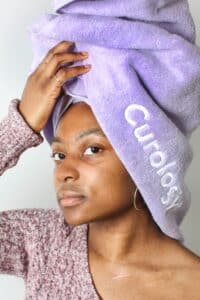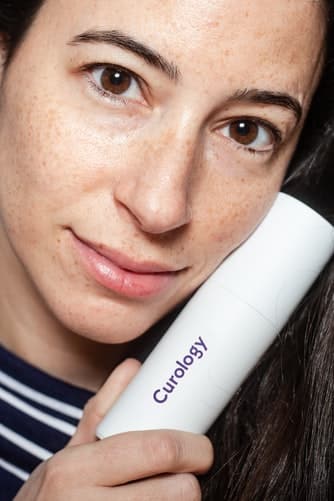What Happens When You Stop Using Curology? Curology is a skincare company that offers consultation and assessment with medical practitioners and dermatologists on an online platform. It allows you to have your skin problem assessed by medical personnel who sends a personalized formula for your skincare. It has gained momentum throughout the years, with many people giving positive reviews about the effectiveness of this treatment.
Additionally, it is a treatment that you can get remotely and will not require you to have an in-person visit to your dermatologist. Before signing up for Curology treatment, you need to know what it is all about, its pros and cons and why you should opt for it.
Here is what you need to know.
Understanding Curology & What is Involved
Curology remains the best platform to use for all your skincare problems. It’s an online platform that allows you to submit pictures of your face by taking an online assessment. This assessment is reviewed by a licensed medical provider who takes time to understand your skin. The online evaluation involves you giving past medical records in detail and any treatment that you had undertaken. With this, the medical provider can provide a personalized treatment plan to help in your skincare.
The prescription cream that the medical providers send is accustomed to working for your specific skin type, whether oily, dry, or a combination of the two. Among the common ingredients found in Curology custom formulas are; Vitamin B3, azelaic aid, which acts as an anti-inflammatory, tranexamic acid, tretinoin, niacinamide, and metronidazole.
In detail, each ingredient in the Curology formula has its function. Here is what to expect once you sign up for Curology treatment:
- Clindamycin: This antibiotic cream helps treat inflammatory acne on your skin by fighting the bacteria that causes it. If experiencing zits, clindamycin helps make them less red and swollen.
- Azelaic acid: Azelaic is a naturally occurring acid that helps renew your skin. It fights with bacteria that cause acne, therefore enabling it to disappear and fade.
- Retinoic acid: Also known as tretinoin, it is capable of treating acne and sun-damaged skin. It also helps reduce harsh lines on your skin and dark spots.
- Niacinamide: Available in Vitamin B-3, niacinamide makes your pores smaller and helps with oil production.
- Zinc Pyrithione: With its antibacterial and antifungal properties, zinc treats your acne further, making your skin brighter.
- Tranexamic acid: With its potent anti-inflammatory property, it helps improve brown patches on your skin and restore your skin barrier. It also helps treat skin discoloration.
As such, with these ingredients, Curology treatment is effective once you start using it. All components work together to treat your skin acne on your target areas.
What are the Advantages of Using Curology Treatment?
Curology treatment is effective compared to other treatments, which you have to try first to know if it suits your skin. The online assessment is vital. The dermatologist has detailed information on your skin type and the type of treatment you have worked with before. This enables them to give you a formula accustomed to your specific skin type.
It is a treatment that makes it easier to access. You can order it from the comfort of your home. All you need is to complete the online assessment and submit photos of your affected area. You do not need an in-person visit to a dermatologist.
However, there are cons associated with Curology treatment. Among the cons of using Curology medicine is that you cannot use your health insurance to pay for Curology products.
Now that you have a deeper understanding of how Curology treatment works, what happens when you stop using Curology medicine?
Like any other treatment, Curology requires you to follow the prescription and the timelines given by your dermatologist.
Your skin tends to adjust to the new routine, and a change to it may cause specific effects. It is therefore advisable that you follow the routine till the end. Failure to do this, there are effects of discontinuing your treatment, especially if you have not received the directive from your dermatologist.

What Happens When You Stop Using Curology?
You will experience breakouts, adverse in this case. Reviews on the internet have proved that an abrupt stop to using Curology treatment causes breakouts that will happen more than usual. It happens as your skin is used to the treatment and the ingredients in your Curology formula.
Curology has potent prescription ingredients. Each ingredient in a Curology treatment has its specific function in reducing acne and improving your skin discoloration. When you stop using Curology, the effect recedes. It means that if you were experiencing skin discoloration, your skin goes back to its initial situation, back to the drawing board.
Accustomed prescriptions have a catch to it. Curology treatment works in such a way that a licensed medical provider studies your online assessment and uses this to prescribe an accustomed formula for you. Used prescription is harsh on the skin. An example of an ingredient that has severe effects once you stop using it is tretinoin. Tretinoin is an ingredient that helps reduce wrinkles and treat acne; an abrupt stop to using Curology treatment will harm it. Your acne and wrinkles will be as when you started the treatment.
As such, following treatment until you see improvement is advisable. An accustomed prescription effectively reduces your skin acne, improves your skin discoloration, and clears rough lines on your face. It will only be effective if you follow it and stop the treatment after consulting with your dermatologist; otherwise, stopping treatment will only get you back to the drawing board.
However, if the acne does not clear up, it is advisable to take a break from the treatment. It also applies to when Curology treatment causes blemishes and irritations on your skin. Consult with your dermatologist about your treatment and work with alternatives. Better yet, you can tone down the treatment and tweak it so that it is effective and not too harsh on your skin.
